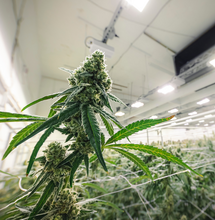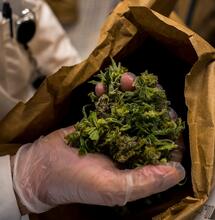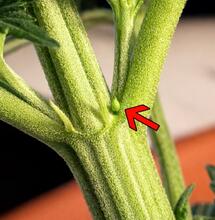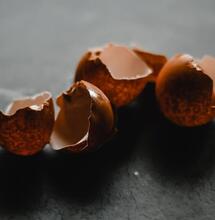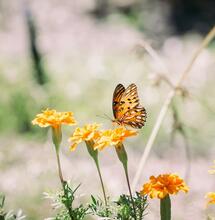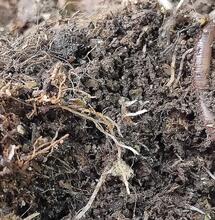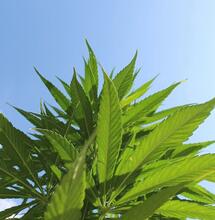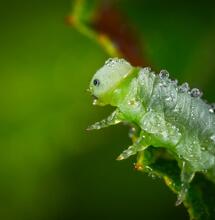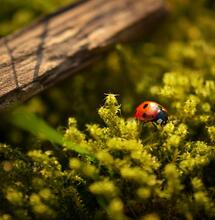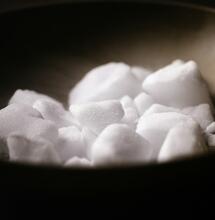Coffee Grounds for Your Cannabis Garden
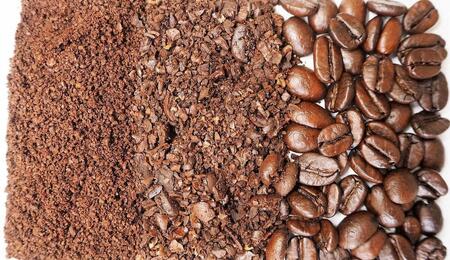
Grounds and chaff from home-roasted coffee beans can be reused for flower beds, vegetable plots, or Cannabis plants. This type of organic seed meal works as an excellent soil amendment. You can source it quickly if you use filter coffee. Or you can also approach a local coffee purveyor and help them out with waste management. Below, read more on the advantages of coffee grounds and how this natural fertilizer can improve your garden.
Benefits of Using Coffee Grounds in Cannabis Soil
Spent coffee grounds is an inexpensive natural fertilizing solution. Grounds are rich in nitrogen content, one of the three essential macronutrients needed for cannabis plants to thrive. Used grounds may be dispensed directly onto the soil surface, around the base of the plant, or can be worked into the soil to offer time-released benefits.
A seed meal such as spent coffee ground has pH values in the range of 5.8 and 6.2, which is acceptable for soil conditioning. If non-bleached paper coffee filters were used for preparing the coffee, the supplement might be composted as a whole without putting an additional strain on the environment.
It Is Important to Monitor Soil pH & Nitrogen Levels When Using Coffee Grounds
Spent coffee grounds can slightly increase soil pH when used as an additive. Always use used grounds rather than fresh coffee, as caffeine can harm plant growth and disrupt the growing environment. Fresh grounds are also more acidic, which can stress your plants. Fermented or rotting coffee grounds should also be avoided.
The nitrogen in spent coffee grounds is bound within organic matter and takes time to break down. As it decomposes, it slowly releases nitrogen into the soil, providing plants with a steady, long-term source of nutrition rather than a quick boost.
While coffee has a more significant percentage of nitrogen (this will slightly vary depending on the types of coffee beans), it also contains small amounts of other nutrients, including phosphorus, potassium, magnesium, copper, and calcium. The nutrient composition is generally maintained in a balanced proportion.
Just like nitrogen, it takes time for some of the other macro- and micronutrients to become available to the plant, while a portion will immediately mix with the soil. Besides cannabis, coffee grounds are also great for tomatoes, carrots, lettuce, blueberries, radishes, etc.
Let’s find out how to prepare and apply spent coffee grounds in your cannabis garden!
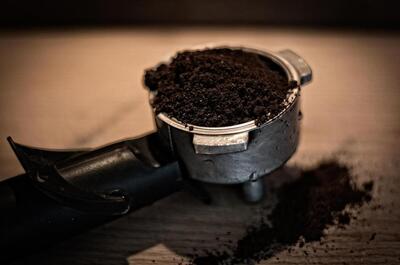
Five Ways to Use Coffee Grounds in Your Garden
There are various ways how to fertilize your cannabis garden with spent coffee grounds.
- Soil Amendment: Mix the used grounds six to eight inches into the soil. The grounds will supply both macro and micro-nutrients to your crops and help to condition and aerate the soil.
- Side-Dressing Fertilizer: Feed the grounds directly to the plant. Spent coffee has a favorable carbon-to-nitrogen ratio, which is suitable for both plant and soil nutrition.
- Composting: Apply with other plant materials. For example, the compost pile can be layered with 1/3 leaves, 1/3 fresh grass clippings, and 1/3 coffee grounds. Make sure to turn your compost regularly.
- Worm Castings: If you have a worm bin, add coffee grounds once a week or so. Combine with kitchen scraps, fruits and vegetable peels. Worms will enjoy this tasty meal.
- Foliar Spray: Prepare a spray solution by soaking about a half-pound of spent grounds in five gallons of water. Apply directly onto the plants. The spray is particularly useful for the leaves undersides.
No matter how you process this type of kitchen waste, remember that it helps to condition the soil, it increases the soil structure and fecundity, and provides healthy nourishment for plants.
Additional Benefits of Applying Coffee Grounds To Your Cannabis Garden:
Anti-fungal properties help to prevent nasty opportunists from taking over your garden, such as Pythium, Fusarium and Sclerotinia. Incorporating this kitchen waste product into soil or compost may aid in preventing build-up of Verticillium and Fusarium inoculates. As an added bonus, slugs and snails tend to be deterred, and cats may also be repelled through the use of coffee grounds, since most felines dislike the smell of coffee. If a pesticide effect is desired, remember that organic brands of coffee may be less effective, as they usually do not contain pesticides.
More from Soft Secrets:
- Uses of Baking Soda in Cannabis Gardening
- Natural Fertilizers: Eggshells for Cultivating Cannabis
- The Worst and The Best Companion Plants for Cannabis
Last updated November 5, 2025
